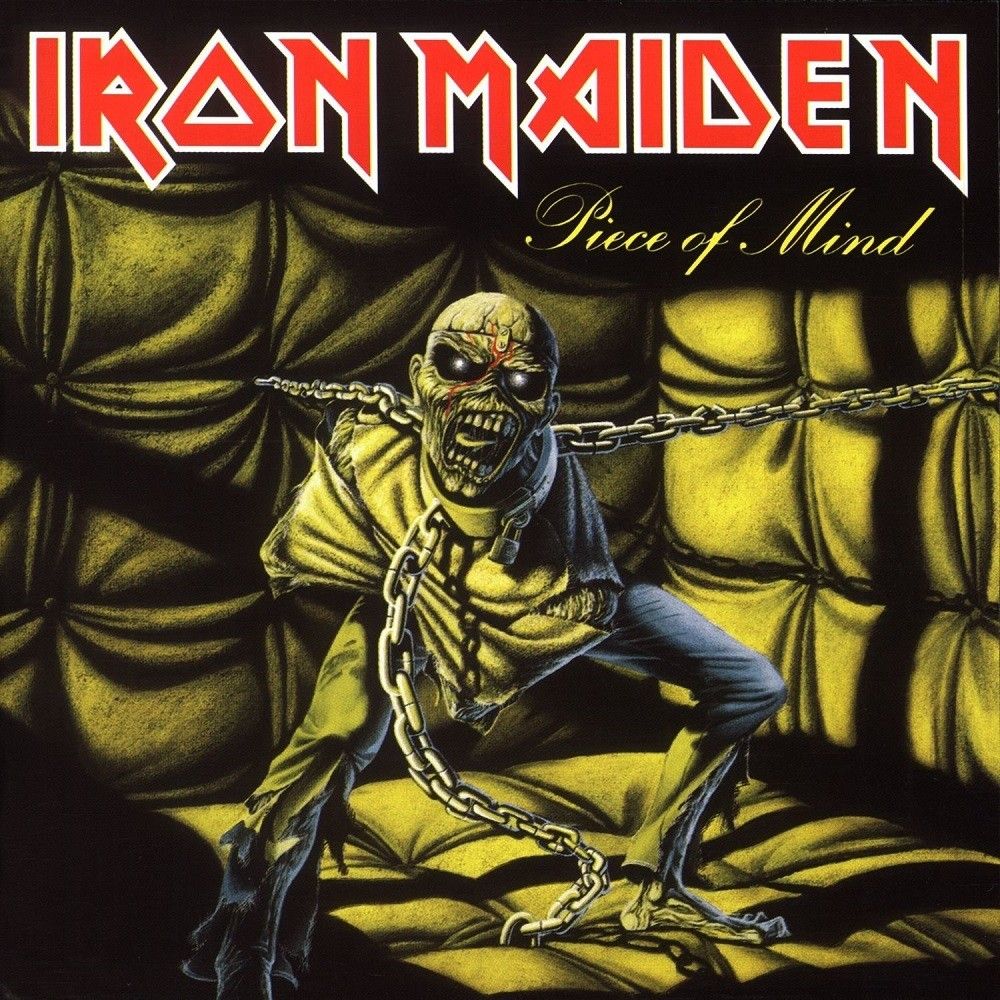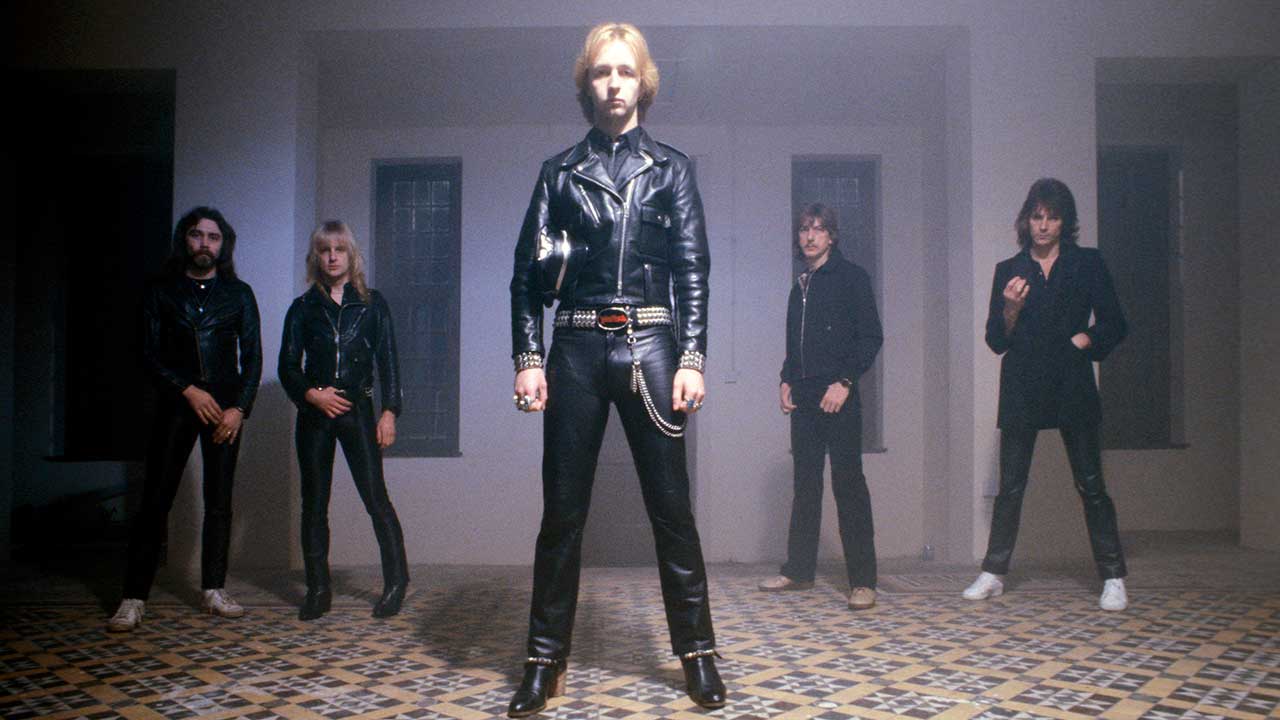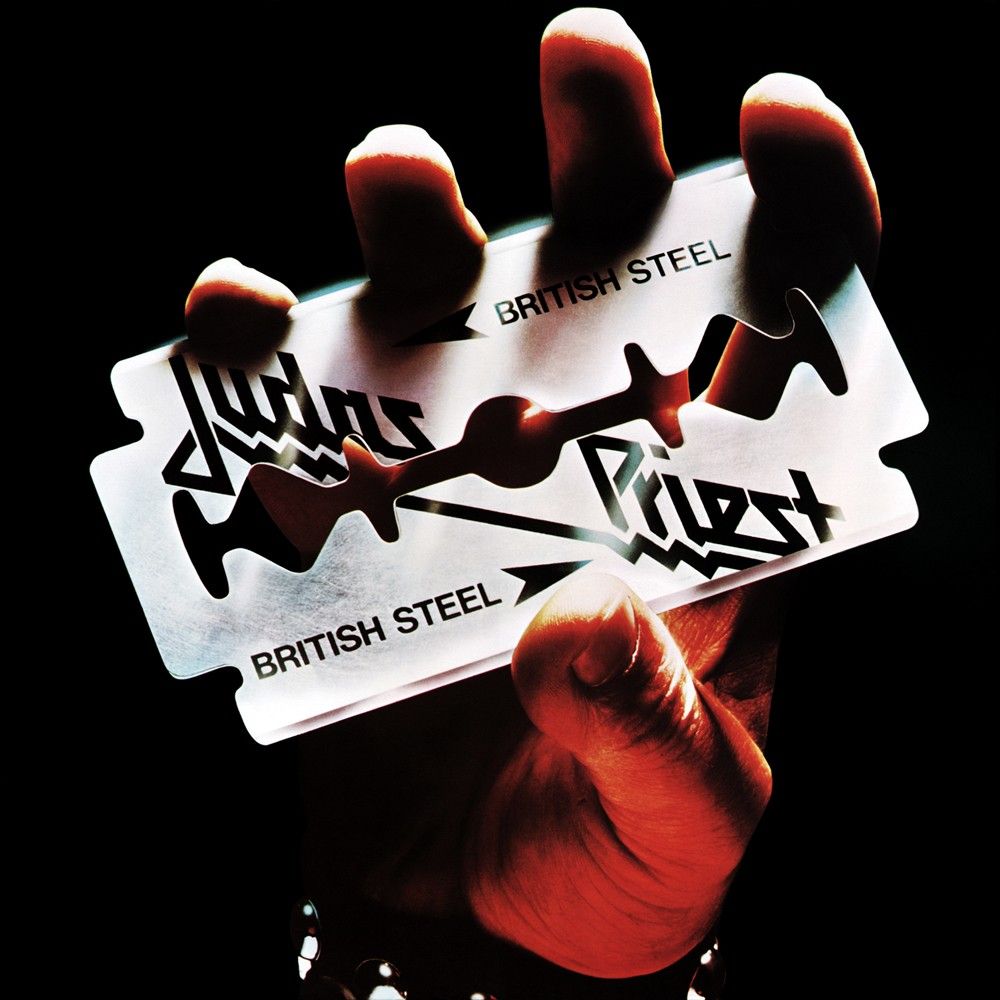Listen To KEVIN DUBROW Singing SCORPIONS “Big City Nights”; One Of His Last Ever Recordings
Kevin DuBrow passed away in 2007 at the age of 52. Kevin was best known as the lead vocalist of

Welcome to another edition of Versus, the recurring column where we take a look at two iconic or popular releases in heavy metal music and compare them to each other and see which one was the better record. On this edition, we have a This Day in Metal staff request, with not only two legendary bands but two iconic releases in the band’s histories. Both bands, who are icons and are on the Mt. Rushmore of the popular genre known as the New Wave of British Heavy Metal (or NWOBHM for short). This fight I am calling “The Battle for Britannia”.

In this corner, we have metal icons (and deserve to be in the Rock and Roll Hall of Fame) and a band with some of the most iconic imagery in heavy metal history, Iron Maiden. Today, they step into the ring with their fourth record, 1983’s Piece of Mind. Coming off the band’s breakthrough record The Number of The Beast, with new vocalist Bruce Dickinson, the record was a tough act to follow. The record also featured the debut of drummer Nicko McBrain, who had left the band Trust and has remained with the band since this release. With the addition of McBrain, his drumming along with bassist Steve Harris created an amazing rhythm section and some would say, one of the best rhythm sections in metal history.

The album kicks off with “Where Eagles Dare”, where Harris and his bass are more prominent in the mix, adding more boom and power to the driving guitars, giving a strong opening riff to the album. Dickinson’s vocal performance hits the listener strong and the band musically showcases their musicianship after the guitar solo, showing that even instrumentally, they add more dynamic range and show they can perform strong even without the theatrics of their lead singer’s vocal delivery. The track “Flight of Icarus” showcase the perfect marriage that Harris & McBrain combine with their bass and drum dynamics and performance. The harmonies of Dickinson’s vocals on the chorus are so well-mixed and are pleasing to the ear over the riffing of the chorus.
The live staple and Maiden classic, “The Trooper”, is probably one of the most recognizable guitar intros and riff in heavy metal history. With Harris and McBrain’s driving rhythm section added to the dueling guitar harmonies of Dave Murray and Adrian Smith, the song just turns into a headbanging classic. Then when Dickinson’s vocals kick in, when the music stops, shows how much power and aggression he brings before the music kicks back in and that iconic chorus where you instantly picture the crowd singing it back with as much ferocity as Dickinson sings it live. I wish one day Maiden would perform this song, or a collection of their songs, live with an orchestra and choir, because I think that song would be an incredible performance and add a new level to the already grandiose nature of the song (seriously Iron Maiden, please make that happen.)
The album continues their strong performance with “Quest for Fire” with their iconic galloping guitar intro and vocal harmonies that hit hard on the chorus and add more dynamics with the lyrics and almost theatrical storytelling throughout the song. Album closer “To Tame A Land” opens with great ambience and slow build with the bass playing leading into the song’s seven-minute epic journey. With strong vocals, a toe-tapping bass and rhythm section throughout the track, and strong playing by both guitarists, it ends the album strong and closes out one of Maiden’s best records.

In the other corner, we have one of the other leaders in the NWOBHM movement and showed a more straight-forward version of metal, the leather-clad Judas Priest. With their seventh record, 1980’s British Steel, the band began to rise into the pop culture lexicon with this release. The band focused on less dark lyrical themes that were prominent of their previous releases and worked on a more commercial themed sound on this record. Lead singer Rob Halford has said that the band may have been inspired by Aussie-rockers AC/DC, which listening to the record, you can agree with Halford as Priest almost created a more heavy-metal-tinged version of AC/DC.

The album opens with the track “Rapid Fire”. A great guitar tone by guitarists K.K. Downing & Glenn Tipton, with the then addition of Dave Holland’s drums, which give the song more punch and add to the rhythm, while also adding a subtle double bass to the drive in the second half of the song. The next track, “Metal Gods”, the listener begins to hear the AC/DC influence on the album with a song that has that 80’s metal-cliché intro sound along with the guitars over the chorus of Halford’s vocals on the chorus. I also love the closing riff of the song, my only gripe with the song is I feel like the vocals on the chorus are missing something, maybe need harmonies and accents to the song. The song is called “Metal Gods”, you want to show the listener you earned that title and I think the chorus just needs a little bit more.
Priest classic “Breaking the Law” opens with that fast-paced bass playing by Ian Hill until the famous guitar riff kicks in with Halford’s vocal showcasing on the track and prominent throughout the track. Definitely a song I can picture the crowd singing along to the fan-favorite chorus. The guitars might sound like a simple riff, but sometimes simple is better and sometimes the simplest guitar riff to play is the best (ex. “Iron Man” by Black Sabbath).
The album’s first single “Living After Midnight” has a strong, driving 80’s opening guitar riff with simple, but effective drums prominent in the mix and adding that headbanging feeling along with the guitars. Another great song from Priest, showcasing the band’s musical chops and songwriting. From Halford’s vocals, the guitar playing of Tipton and Downing, and a great rhythm section of Hill and Holland throughout the song, this is a standout track off the album. The album’s closer “Steeler” has good, fast-paced guitar playing along with a matching bass to add more reverb and dynamics to the guitars. The playing adds feel and emotion to accent the vocals on the song and closes with a strong guitar solo that almost comes out of nowhere on the track, and is a good closer to this NWOBHM classic.
After both bands came out swinging, the winner of this match is Iron Maiden with Piece of Mind. With more musicianship, and a more original sound on the record, Maiden delivers a stronger record overall. While British Steel is still a great record and a classic in Judas Priest’s discography, personally I feel like the AC/DC influence on the record hurts the record a bit, taking away from the sound that made them metal legends in their previous records. Judas Priest is a great band doing what they do in playing Priest style songs and albums (see Screaming For Vengeance and Painkiller), and they would continue to follow that sound, up to their most recent and amazing record, 2018’s Firepower. A good battle, but I have to raise the arm of the mighty Maiden as the winner of this matchup.
Do you agree with my decision? Who do you think should have won? Leave your comments in the comments selection below as well as what matchup you would like to see next. I’m Justin, your friendly neighborhood metalhead, for This Day in Metal and this was Versus.

What happened on this day in #ROCK #CLASSICROCK #GLAMMETAL #HEAVYMETAL #THRASH history! #TDIM